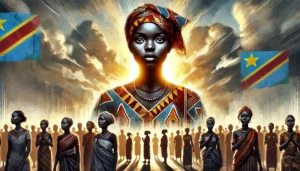 Submitted by Sandra Shaw, Co-President CFUW Perth and District Club
Submitted by Sandra Shaw, Co-President CFUW Perth and District Club
I attend the UNCSW as a delegate with the Canadian Federation of University Women (CFUW). Educating myself on women’s issues about which I am ignorant has become extremely important to me as I age. As a younger woman, raising a son alone and working, I thought I ‘sometimes’ struggled. Little did I realise that I was living a life of privilege. I am Canadian, educated, white, middle class, have been self-employed for almost the entirety of my adult life and own property. I have never given much thought to ‘my rights’ because I thought I was equal. I have never felt discriminated against, I have never been really hungry, I have never had my home taken from me, experienced domestic violence (or any violence for that matter), or been ‘profiled’. I have never been incarcerated. I had a childhood filled with love and support from both my parents. I have suffered only ‘first world’ problems. What a lot I have to learn about other women’s struggles and the injustices they endure.
The three UNCSWs I have attended helped open my eyes. I am gaining an understanding of equality issues that both bind and separate women depending on geography, nationality, race (if it exists) and social status. Sessions at the CSW have humbled me and leave me with immense respect for all the resilient women whom I have met, heard and seen who continue to fight for their basic rights in the face of often overwhelming adversity. They are undaunted by setbacks and continue their equality campaigns, not just for themselves but for their sisters, daughters, nieces, grand-daughters and great grand-daughters. Women who have taken up the gauntlet to fight for their ‘sisters’ (activists, lawyers, social workers, physicians, and on and on) also grapple with intolerable opposition. Murders of women who speak out or write about the fight for equality happen all too frequently. But still, all these women persevere with passion. They come to the UNCSW to tell their stories and light the fire for others.
I admit that I leave each CSW both distraught and outraged for how little seems to have been achieved. The Universal Declaration of Human Rights (UDHR) was adopted by the UN in December of 1948, enshrining the rights of ALL humans into International law. Many countries have either signed and not ratified the UDHR (the United States being one) or have not signed at all. Numerous other treaties and conventions have been issued since the UDHR and still women are fighting each day for basic rights, equality and, all too often, for their lives. CEDAW (Convention on the Elimination of all Forms of Discrimination Against Women, 1981), 1995’s Beijing Conference and Platform for Action, the Millennial Development Goals and the subsequent Sustainable Development Goals 2030 have all made women’s equality a priority yet not one country in the world can claim to have achieved it. In my heart, I remain doubtful that any country, even the most progressive, will be able to accomplish the goals of the Beijing Declaration and Platform for Action or the SDGs by 2030. Issues addressed at the CSW63 support my skepticism. Still, we carry on.
At first glance, this year’s CSW theme (social protection systems, access to public services and sustainable infrastructure for gender equality and the empowerment of women and girls) seemed overwhelming in breadth, however numerous related topics allowed me to concentrate my efforts to attend as many sessions as possible in six days. These topics included indigenous women’s empowerment, macroeconomics and taxation for gender equality, infrastructure development to both prevent and protect women and non binary persons from violence, the place of childcare in the fight for equality, and the impact of government austerity measures on increased violence against women and women’s poverty. This latter subject provided some particularly disturbing information. Many countries are adopting austerity measures to deal with mounting debt. However, these measures generally include decreasing or eliminating public services which are often followed by private employment sources downsizing. A decline in social protection services is particularly hard on women because it may also mean lost jobs (either theirs or their partners) and lost health, childcare, legal, emergency housing, protection and/or education services. Lost employment and economic downturns lead to increased domestic violence (DV). Outside research suggests that if a male loses his employment there is less DV, however, if the female loses her job, DV increases1. Contrary to this are reports of ‘increased DV perpetrated by men when they lose their jobs as increased stress and tension in a home causes them to express their anger, frustration, and fear in a violent manner towards those people dependent upon them. Feeling a loss of control at work or in personal finances can result in abusers aggressively trying to control the people in their lives. Stress can cause people to use drugs and alcohol to cope. Drug and alcohol use are connected to higher rates of domestic violence’2. In Canada, one woman is killed by her intimate partner every six days3. If there is no political will to change this, given the global economic and political climate and the increase in wealthy ultra-right populist leaders, the impact and frequency of DV worldwide is only going to worsen and women’s rights will continue to be eroded.
On a more positive note, this year’s CSW also acted to cement emerging mainstream feminist vocabulary. Words and phrases including gender non-conforming (also non-binary identity, gender fluidity), gig economy, social protections, shame based relationships, pan-indigenous, feminist-informed, digital and industrial violence, tax justice, Global North and Global South, etc. informed the over 400 NGO Parallel presentations and 400+ Side Events. In one session I attended, panelists discussed that change in government policy must begin with the community (bottom up policy development) and the community language will be reflected in this change.
It is always a challenge to select that one session or nugget that alone leaves an indelible mark. Nevertheless, for me, the thoughtful discussions between political leaders and civil society at the CSW serve to emphasize that there are those in positions of influence and power who are fighting for women’s equality as hard as those of us on the ground. UN Secretary General Guterres, the Honorable Minister Monsef (Minister of International Development and Minister for Women and Gender Equality in Canada) and Canadian Senator McPhedran, amongst numerous others, gave up their time to meet with NGO representatives to explain not only what has been and is being done for gender equality but also what remains to be accomplished. Secretary General Guterres, in particular, admitted that we are losing ground regarding women’s rights and encouraged and emboldened participants to ‘push back on the pushback’.
Information to which I was exposed at the UNCSW63 continues to percolate in my mind, especially the widening gap between the rich and poor (which negatively impacts women disproportionately), the fact that somewhere in the world, a billionaire is created every two days, that the excessively wealthy and large monolithic multinational corporations excel at tax avoidance which limits services needed for a robust and equal society. I am frustrated and angered but ultimately mobilised by these issues (as well as others). I will continue to attend the CSW when possible and pass on the information I have gathered to all those who will listen. I want to educate; I want to inspire discussion; but more than anything I must be a women’s rights champion.



